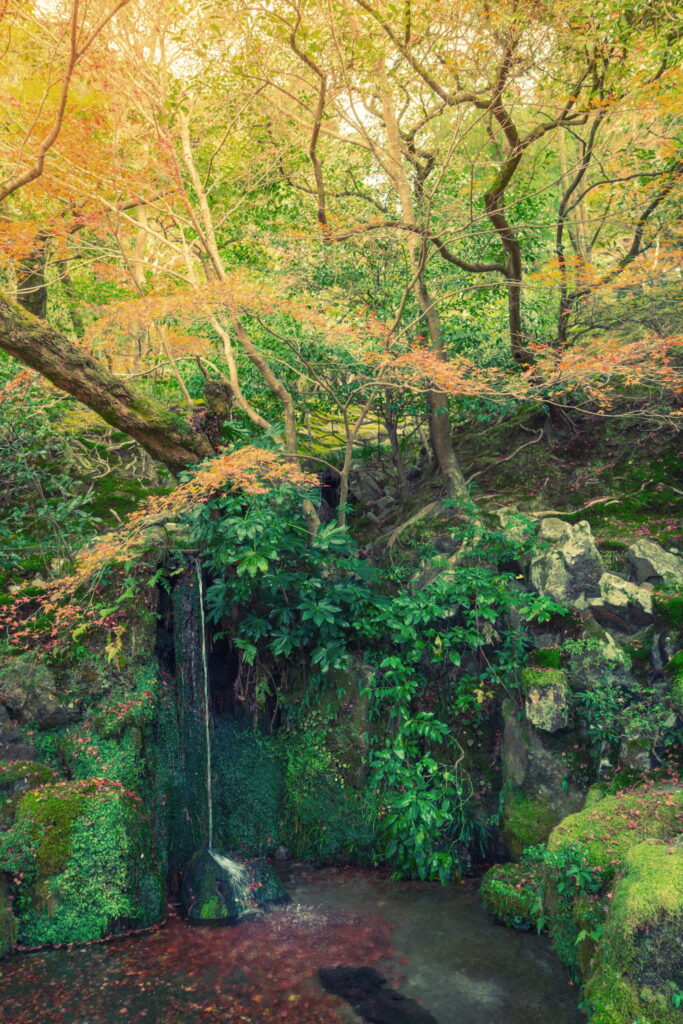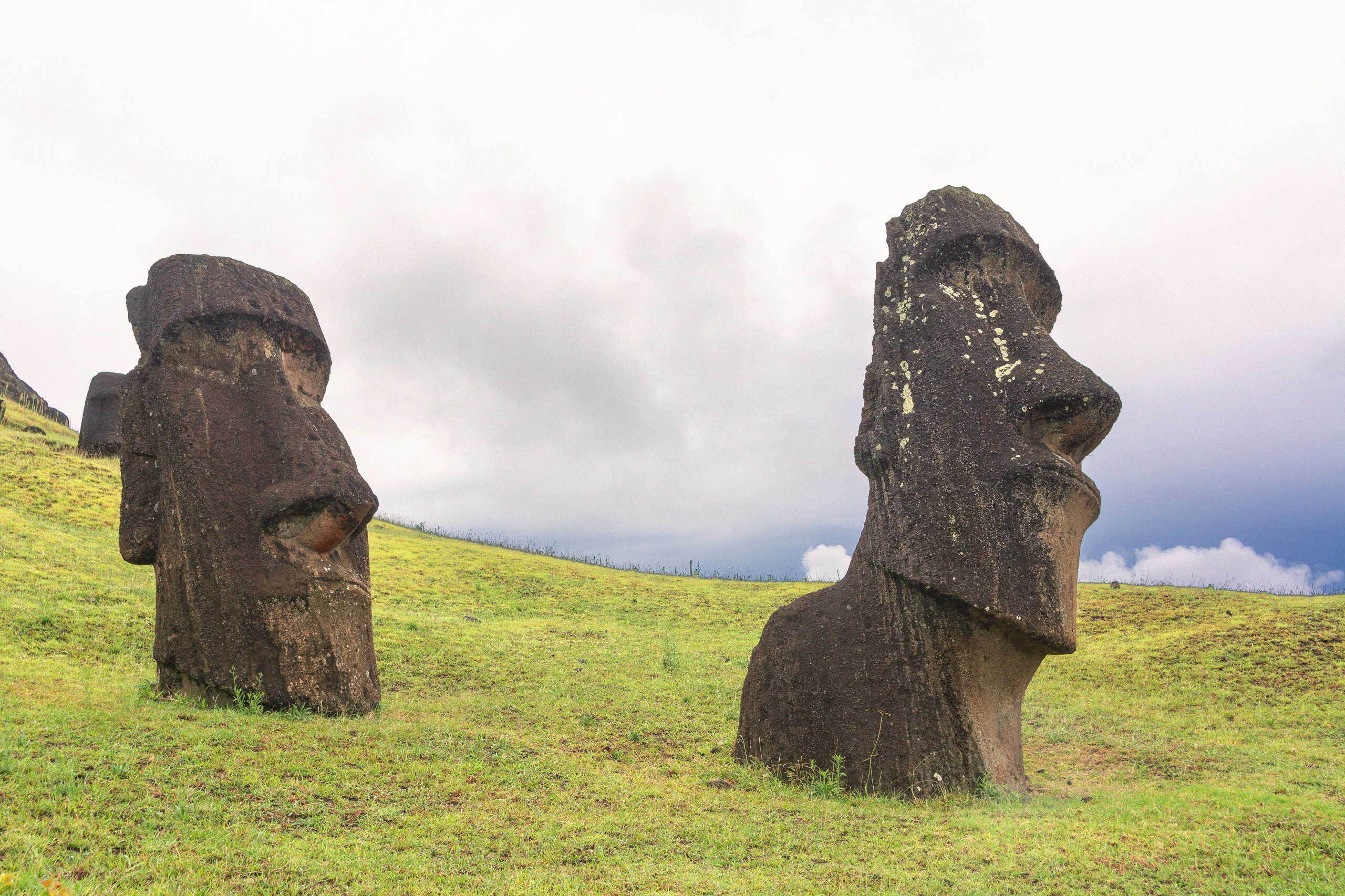Buckle up, eco-history buffs!
We’re journeying to Easter Island, a paradise with a dark secret.
Imagine swaying palm trees and vibrant coral reefs teeming with life, a sense of peace washing over you.
This idyllic scene wasn’t always a dream vacation spot; it was Easter Island before its tragic downfall.
This once-thriving civilization is a stark reminder that our future hinges on how we treat the environment.

Why Does This Matter?
Extinction is a habit we humans keep repeating.
Throughout history, mighty empires like the Sumerians, Greeks, and Romans have crumbled, facing a common enemy: a self-inflicted shortage of resources.
Like the Easter Islanders who chopped down the trees they needed for survival, these civilizations depleted their forests, poisoned their land, and choked off their water supplies.
The story of Easter Island is particularly chilling.
The first inhabitants, arriving around 1,500 years ago, initially thrived.
They hunted, fished, and built impressive monuments using resources from their island home.
But their success proved unsustainable.
The towering palm trees that provided wood for canoes and construction were mercilessly cut down.
This deforestation triggered a domino effect – soil erosion washed away, streams dried up, and the once-abundant wildlife vanished.
With their traditional food sources gone, the islanders turned to more destructive practices.
They overfished the surrounding waters and even resorted to cannibalism.
This frenzy of resource depletion caused their population to plummet from an estimated 10,000 at its peak to a mere 2,000 by the time Europeans arrived in the 18th century.
Easter Island isn’t an isolated incident.
Other Pacific islands share similar tales of environmental devastation and social collapse.
But there’s a crucial difference.
Polynesian societies on some islands also faced initial environmental degradation.
However, unlike Easter Island, they made « conscious choices » (as documented by archaeologist Patrick Kirch) to ensure their long-term survival.
These choices, though difficult, included restrictions on animal agriculture – a significant contributor to deforestation – and even population control measures.

What Can We Learn From These Cautionary Tales?
Here are two key takeaways:
- Knowledge isn’t enough: We, like the Easter Islanders, have enough scientific knowledge to understand the consequences of our actions. We know deforestation and unsustainable practices lead to disaster. Yet, we often fail to translate that knowledge into actionable change.
- Social Change is Key: The solution lies not just in science but also in our social structures. We need institutions and policies that promote sustainable living and discourage destructive practices. More importantly, we need a collective awakening – a recognition of our global impact and a willingness to act for the betterment of the planet.
The Future Is Not Set In Stone
Unlike the Easter Islanders, who have dwindling resources, we have a chance to rewrite our story.
We can chart a course toward a sustainable future by adopting a more « green » lifestyle – embracing renewable energy, reducing waste, and respecting the environment.
Let’s learn from past mistakes and ensure our story has a happy ending, not a tragic one.
Kind reminder: Here are some simple steps you can take to live a greener life:
- Reduce your reliance on single-use plastics.
- Choose eco-friendly cleaning products.
- Conserve water and energy at home.
- Support companies committed to sustainability.
- Spread awareness about environmental issues.
Remember, every small action adds up.
Together, we can create a healthier planet for ourselves and future generations.
Disclaimer
- It is intended for general informational purposes only: The information provided on BioKissed’s website and app, including but not limited to business opportunities, nutrition tips, healthy lifestyle tips, healthy lifestyle practice articles, nourishing recipes, and wellness articles (hereinafter collectively referred to as « Content »), is intended for general informational purposes only. The Content is not intended to be a substitute for professional business advice, medical advice, diagnosis, or treatment.
- It is solely at your own risk: BioKissed does not recommend or endorse any specific tests, physicians, products, procedures, opinions, or other information that may be mentioned on the website or app. Reliance on any information provided by BioKissed, its employees, contracted writers, or others appearing on the website or app at the invitation of BioKissed is solely at your own risk.
- BioKissed does not endorse or approve any views in the Content: BioKissed does not guarantee the accuracy, completeness, or usefulness of any Content, nor does it endorse any views expressed within the Content. The inclusion of any Content on BioKissed’s website or app does not imply endorsement or approval of such Content.
- You voluntarily assume all such risks: Before participating in any challenge, making significant lifestyle modifications, altering your dietary practices, or engaging in any related activities, it is advisable to assess your personal health and fitness levels. BioKissed expressly disclaims responsibility for the substances individuals choose to consume, and the company is not liable for any consequences, including those related to food allergies, resulting from such choices. By choosing to participate in any challenge, you acknowledge and agree that any such activities carry inherent risks, and you voluntarily assume all such risks, even if they arise from the negligence of BioKissed, its affiliates, or its members.
- BioKissed and its content providers disclaim any responsibility or liability for consequences: BioKissed and its content providers assume no responsibility or liability for any consequence relating directly or indirectly to any action or inaction you take based on the information found on or through BioKissed’s website or app.
- Read more
